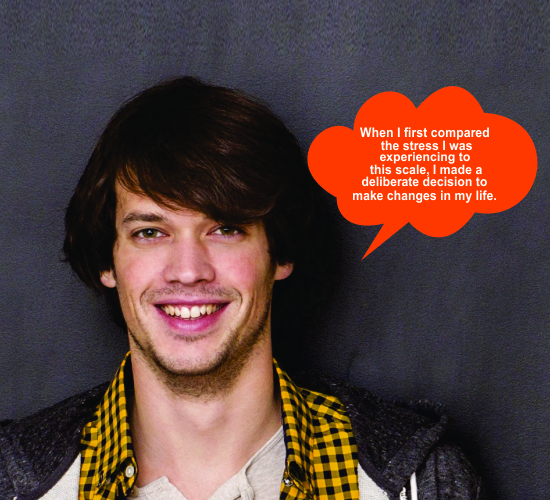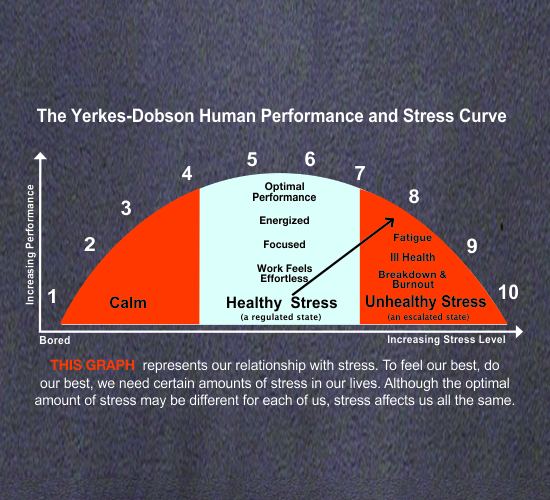
Although we may not know how it actually works, on a personal level, we know what stress is. It’s one of those “I know it when I see it” sort of things. Typically, we ignore or avoid our stress. Then something tough happens. That’s when we become aware of stress: when we feel overwhelmed.
This doesn’t have to be so, though. We can learn to minimize the painful effects of stress. We can even use it as an ally to help improve our lives.
LET’S CONSIDER TWO THINGS:
1) A stressor is a situation or an event, such as a traffic jam or barking dog...while stress is actually your response to that situation or event.
2) In the right amounts, stress is a positive and motivating force that gives you that boost you need to perform your best. Alternatively, too much stress makes us anxious, angry and exhausted…unable to perform at all.
Imagine Wile E. Coyote, a stressor, chasing the Road Runner. The stress response is the release of energy-producing hormones and more blood-flow to the muscles in the Road Runner’s body. If not for this stress response, the Road Runner wouldn’t be able to outrun the coyote. And we all know what will happen if Wile E. catches the Road Runner.
When we experience the right amount of stress, we feel energized, ready to accomplish great things. Our goal in life shouldn’t be to get rid of stress. Instead, we want to create a life filled with the right amount of stress. Too much of anything isn’t good.
The graph on the top of the next page shows our relationship with stress. To feel our best, do our best, we need certain amounts of stress in our lives. Although the optimal amount of stress may be different for each of us, stress affects us all the same.
All stressors, whether seen as being good e.g. getting a promotion, or seen as bad e.g. getting laid off, increase our stress levels. True, some things feel more stressful than others, but it’s the cumulative effect that determines if we move into the Unhealthy Stress zone.
If we experience too much stress, we may move into the “Unhealthy Stress” zone. When we’re in this area, we feel overwhelmed. Remaining there can be physically unhealthy. If we can, we try to return to a healthy level of stress by engaging in things that reduce our stress.
You might think that being stress-free would be a good thing. Consider the left side of the curve, however. It’s clear that a completely stress-free life would leave you bored and unmotivated. Think of waking up in the morning—no one is at their best at that moment. So we drink some coffee and begin thinking of the day ahead or watch the news. In other words, we engage in activities that move us into the Healthy Stress zone. That’s when we’re ready to take on the world.
The key to handling stress is knowing that healthy and unhealthy stress are two sides of the same coin. But it isn’t a coin we want to flip and leave the outcome to chance. Stress is the body and mind’s way of rising to its peak performance. Such knowledge eliminates chance and minimizes stress’ impact on you. Furthermore, increased awareness of what’s going on can alert us when our levels of stress are moving closer to the Unhealthy Stress zone. This awareness can play an important part in taking important steps in reducing our stress. After all, how can you change something if you aren’t aware that there is something needing changing?

Read the next blog to learn about the other ways to reduce your stress.




